Europa Universalis IV‘s newest expansion, Emperor, brings a multitude of changes for the Holy Roman Empire (HRE) and Catholics. We’ll also see revamps to existing mission trees for many nations, including Bohemia, as it slowly attains dominance through the Hussite faith. Is it worth your while? Let’s find out in our official review.
Note: Although I own all Europa Universalis IV DLCs, I’ve elected (pun intended) to only have Emperor enabled. This helps ascertain how much it adds to the base game on its own.
Europa Universalis IV: Emperor – Starting as Bohemia
There are a few things to check out once you’ve started your Europa Universalis IV: Emperor campaign assuming you’ve chosen any of the HRE nations. In my case, I picked Bohemia. The first is the new and improved HRE tab which shows all the reforms and changes you can make towards centralization or decentralization. It definitely looks a lot neater than before:
The second would be the new mission trees. Several German states such as Brandenburg, Prussia, Saxony, Thuringia, and Bavaria have new mission trees to reflect the Emperor expansion’s focus on strengthening the HRE, and Austria even gets ahistorical missions for overseas holdings. Additionally, you’ll find new mission trees for the Italian states of Florence, Milan, and Venice, focusing on gradual growth prior to booming into a unified Italy. Likewise, Naples gets some time to shine with the capability to become a republic or form the Kingdom of the Two Sicilies. Should these Italian factions decide to form a new, unified Italy, they’d even get a broader mission tree.
Now, as for Bohemia, its mission tree has been revamped to follow a unique chain of historical events concerning the Hussite faith. These missions include humiliating Austria, subjugating Brandenburg and Saxony, having casus belli against Hungary and Poland, and defending Christendom from the Ottoman Turks. The end goal is to become the Holy Roman Emperor — and also King of Hungary, King of Poland, and Defender of the (Hussite) faith. Let’s just say that in Europa Universalis IV: Emperor‘s Bohemian Rhapsody, Central Europe will be caught in a landslide of your troops with no escape from reality.
Finally, you’ll want to look at the estates tab since this mechanic, too, has been reworked thanks to patch 1.30. The default estates (clergy, nobility, and burghers) will own a share in your nation’s development (represented by a pie chart). You can play around with the different actions — granting titles, seizing land, or convening the Diet so you can be given tasks — all of which affect the loyalty of each estate. You may also grant privileges to each estate to obtain some buffs.
Note: The Papal Controller/Curia mechanic has been reworked in Europa Universalis IV: Emperor. This will be discussed later since my focus while playing as Bohemia is to break away from the Catholic Church to proclaim the teachings of Jan Hus. Should a player choose to stick to the Hussite faith, breaking away from Rome would remove the Curia mechanic unless you make a different choice via an event.
The Humiliation of Austria and the Subjugation of Brandenburg and Saxony
A Bohemia playthrough in Europa Universalis IV: Emperor starts with picking a fight with the von Habsburgs of Austria. Historically, the dynasty was responsible for most of the political machinations in Central Europe, but you could ascend to the top spot with some diplomatic flair and tactical acumen. Once Austria is humiliated, you could start gunning for Brandenburg and Saxony to broaden your reach. You’d get missions with these choices:
- Create a personal union – Make Brandenburg a junior partner; +20% liberty desire.
- Restore the March of Brandenburg – Make Brandenburg a vassal; -20% liberty desire.
- The current situation suits us – Retain the results of the recent peace negotiations; +5 prestige.
These options make Brandenburg and Saxony (HRE electors) Bohemian subjects. They’re considered as “legitimate,” thus conferring no penalties during Imperial elections. In my Europa Universalis IV: Emperor playthrough, however, I started to wonder if this was working as intended. For one thing, both subjects still caused a malus to Imperial Authority which was a little unnecessary considering that they’re “legitimized.” I’d much prefer that the penalty towards Imperial Authority was also removed.
While this is going on, you’ll also get events related to the rise of the Hussites. You can either stick to Jan Hus’ beliefs (which was what I did), reconcile with the Catholic Church where the ruler follows Hus but the nation remains Catholic (what the AI will tend to do), or completely cripple the Hussite movement while remaining loyal to Rome:
Oh, before I forget, you’ll see the powerful bonuses for the Hussite faith in the image below. The religion also uses the Church Aspects mechanic like the Protestants:
Becoming Emperor and the weird, early-game Hussite Reformation
Likewise, according to one of Paradox Interactive’s dev diaries, Hussite rulers may only become Holy Roman Emperor once “Religious Peace” is achieved. As far as I recall, that mechanic only happens after Religious League wars that fractured the HRE have ended.
Oddly enough, I got a Bohemian Hussite king that ended up becoming Holy Roman Emperor. I was sitting at -0.37 Imperial Authority per month thanks to the penalties from so-called “legitimate” subjects (Brandenburg and Saxony) and 58 heretical princes (who were all Catholic). No religious wars happened yet since the Reformation hasn’t even begun (it’s only 1473). Oh, and I can’t “enforce religious unity” since I don’t even have a single Imperial Authority point.
I’m not entirely sure if this was due to disabling all DLCs, including Art of War, or if this mechanic’s working as intended. But, it does go against the information provided in the dev diary. There was no other recourse but to conquer additional lands just to gain Imperial Authority and force other principalities and archbishoprics to convert, or use the “Enforce Religious Unity” command (which also makes them hate Bohemia with a passion). I wasn’t even able to enact any HRE reforms due to a lack of points.
Eventually, just before hitting 1500 AD, the Protestant Reformation finally kicked in giving me the option to convert from the Hussite faith to Protestantism. This automatically converted all factions that changed due to the “Enforce Religious Unity” command (which was helpful), but not those which I converted through peace deals (which was awful). In effect, I had the HRE fractured into Catholic, Protestant, and Hussite religions minus the Religious League wars interface. Hussite was still considered as the dominant religion (even after converting to Protestant), and the number of heretic princes even increased due to the presence of “heretical” religions like Catholicism and Protestantism.
The von Habsburgs of Austria, Imperial Incidents, and the Papal Controller
In contrast to a Bohemian playthrough where I strictly followed the Hussite faith, the experience you’ll have as Catholic Austria would be a breeze. You already start Europa Universalis IV’s 1444 A.D. campaign as the Holy Roman Emperor, and several electors are keen on voting for your heir later on. A little bit of relations improvement plus diplomatic shenanigans (royal marriages as well as personal unions with Bohemia and Hungary via missions) helped make expansion a lot easier.
You can also do some “gamey” tricks such as defeating neighbors to make them release new nations (becoming HRE princes in their own right) to increase your Imperial Authority gains. This allows you to enact all Imperial Reforms to unify the HRE or turn everyone into your vassals.
I should also mention the new “Imperial Incidents,” historical events which defined the political maneuverings in and out of the Holy Roman Empire. There are those such as “The Shadow Kingdom” (reining in Italian princes vs. having them become independent of the empire) or one involving the “Fate of the Hansa” (whether or not you’d protect Lübeck against Denmark).
We should also talk about the Curia mechanic. Catholicism tends to be a little underpowered in Europa Universalis IV and, even though the Papal Controller feature has been around for some time, it wasn’t something that you wanted to focus on. Emperor spices things up a bit thanks to the Curia’s coffers, allowing the Papal Controller to spend some of the accumulated wealth (from all Catholic countries) to enact a Golden Bull. You could also call an Ecumenical Council to increase your chances of becoming a Papal Controller once more.
These changes are very much welcome to fully flesh-out the Catholicism’s features in Europa Universalis IV. However, I think these concepts are tailor-fit for small-scale playthroughs like, say, when picking The Papal States:
Attempting to focus on this mechanic as the von Habsburgs of Austria was ineffectual at best. You had too many things going on while developing your nation, stabilizing the HRE, and expanding further via conquests. It’s also possible that you’ll rarely look at the panel if, say, you’re playing as Castille, Portugal, or England since you’re too busy with colonization.
The Emperor DLC also didn’t include a quality-of-life feature I would’ve liked to have seen, and that’s a means of automating the process or notifying you if another nation has a higher chance of being the Papal Controller. I usually ended up having to dump a lot of influence to reach a 30% success chance. I patted myself on the back only to realize a few months later that the AI bagged the top spot while I was distracted by wars.
Note 1: There’s also a particular bug when attempting to create free cities even though the requirements have been met. It’s possible that, as the Holy Roman Emperor, you won’t be able to create additional ones. Conversely, as a subject, you could get spammed with notifications about the current Emperor’s feeble and repeated attempts.
Note 2: Although Europa Universalis IV: Emperor introduces reforms for Revolutionary Governments, I decided to stick to tradition in both my Bohemia and Austria playthroughs.
Europa Universalis IV: Emperor – The final verdict
Is Europa Universalis IV: Emperor worth your while? Well, if you’re keen on replaying as any of the German/HRE states (or anyone within the sphere of those important events), then the answer is a resounding “yes.” The Emperor expansion adds a lot of new mission trees and mechanics that completely overhaul the way you approach the game. I haven’t even gone into detail about some of the other additions such as new Revolutionary Government reforms, the means of handling insurgents, tweaks to the mercenaries system, governing capacity, Hegemonies, and the like. This is, without a doubt, one of the biggest offerings that Paradox Interactive has provided for the fans, and the long wait (since 2018’s poorly received Dharma) might just be worth it.
However, there are also some caveats to take note of such as janky bugs like the inability to create free cities or Bohemian Hussite HRE rulers creating more maluses than you can shake a stick at. There’s also the lack of QOL improvements to increase the interaction with other princes during votes or notifications when someone overtakes you for control of the Papacy. If you can get around these flaws, then Europa Universalis IV: Emperor could provide you with very refreshing experiences. You’re neither Holy, nor Roman, nor an Empire… but, perhaps, you can turn things around.
Europa Universalis IV: Emperor is available on Steam. You can purchase the expansion for $19.99.

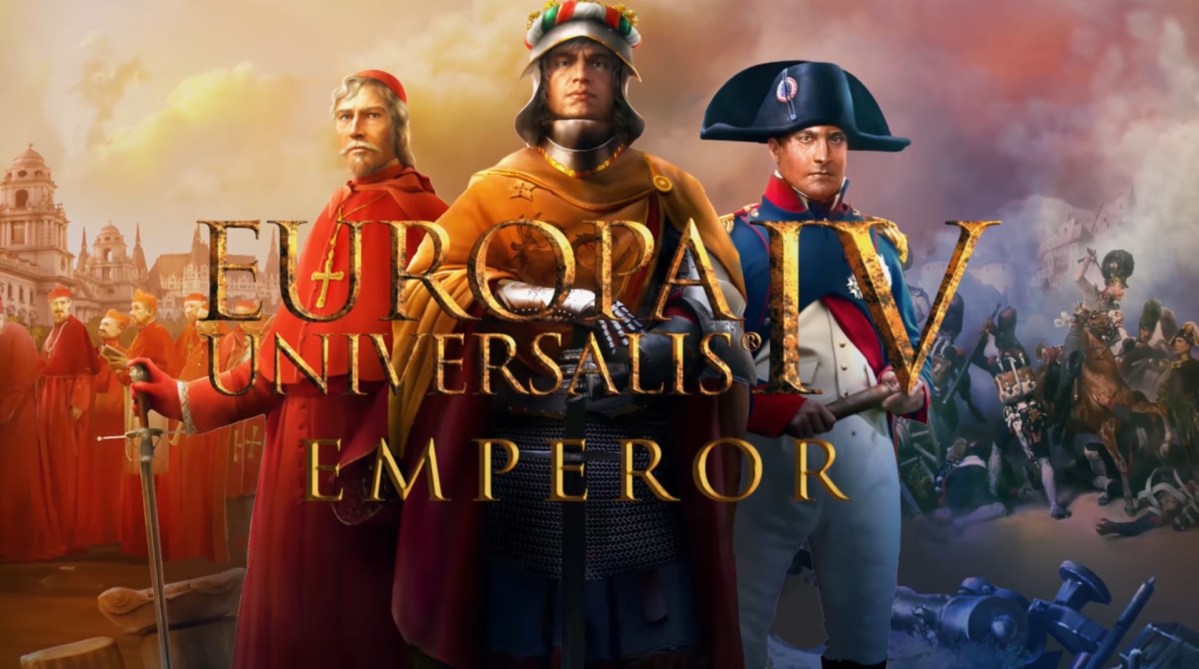
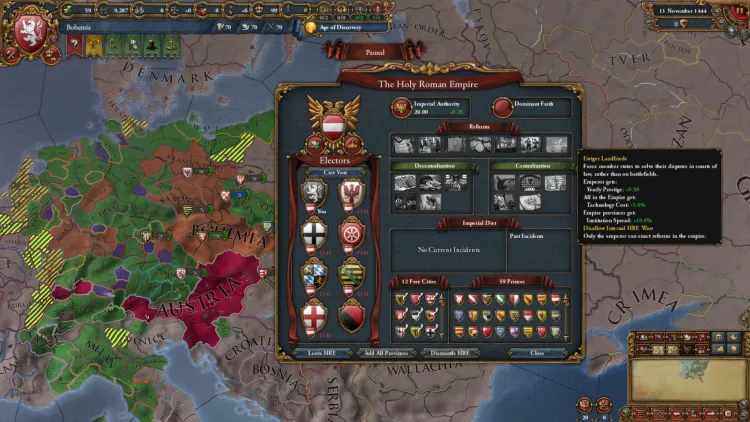
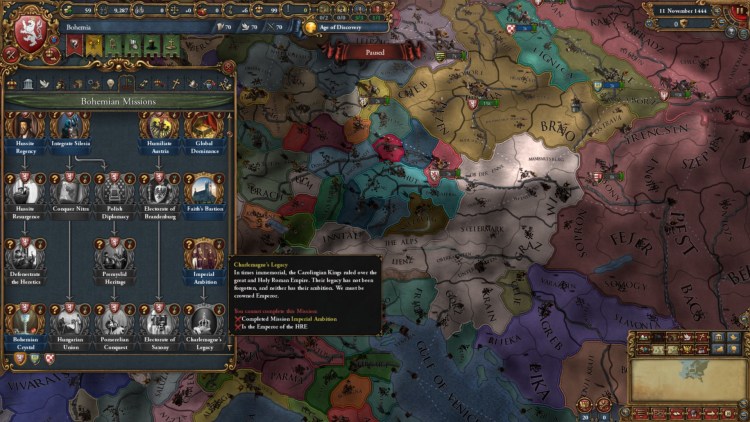
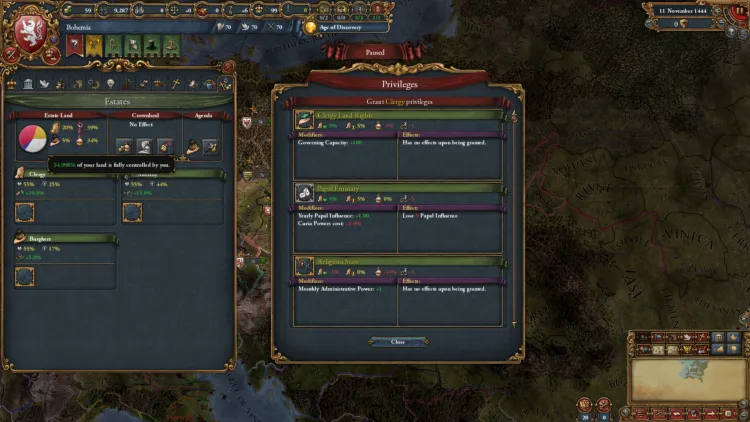
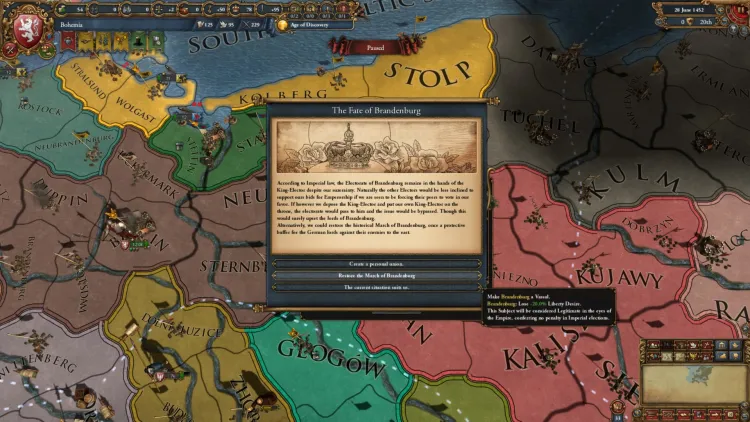
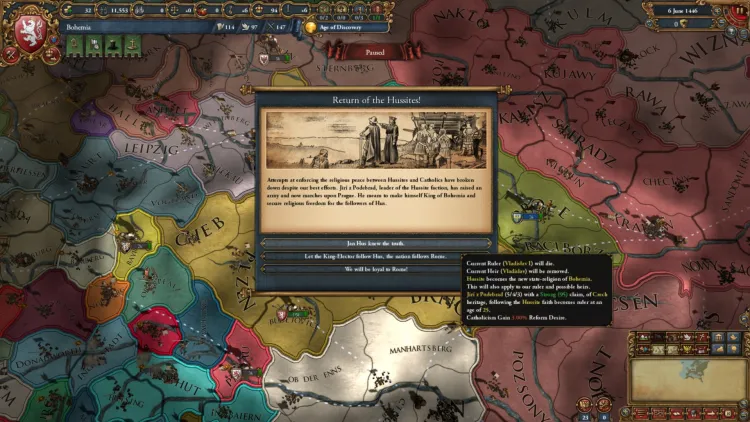
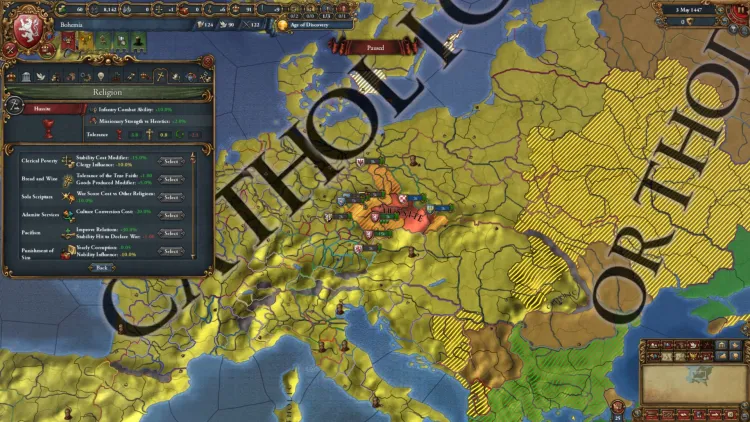
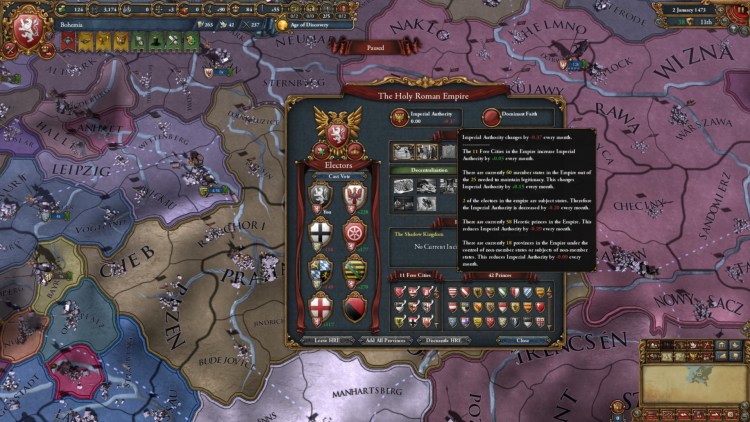
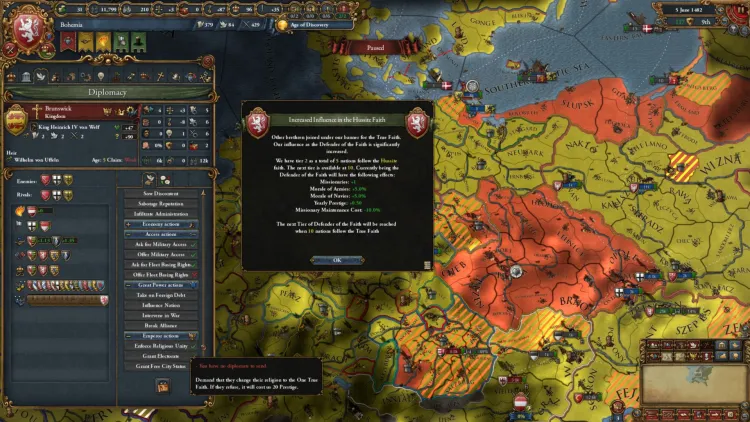
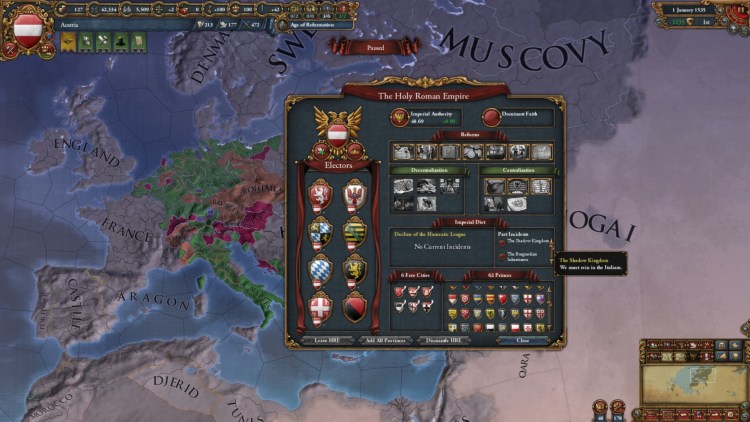
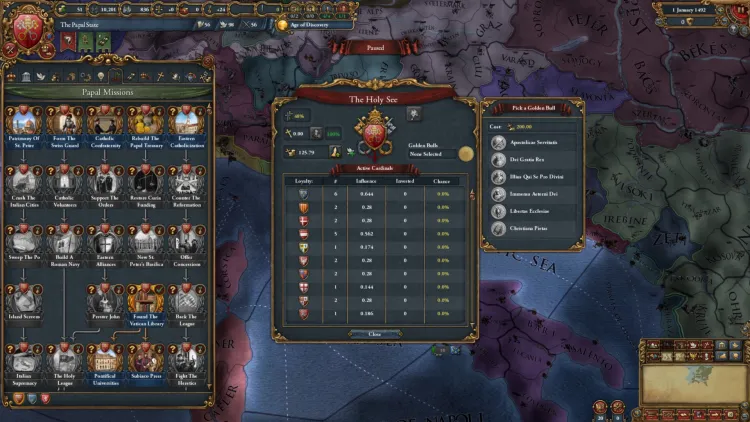
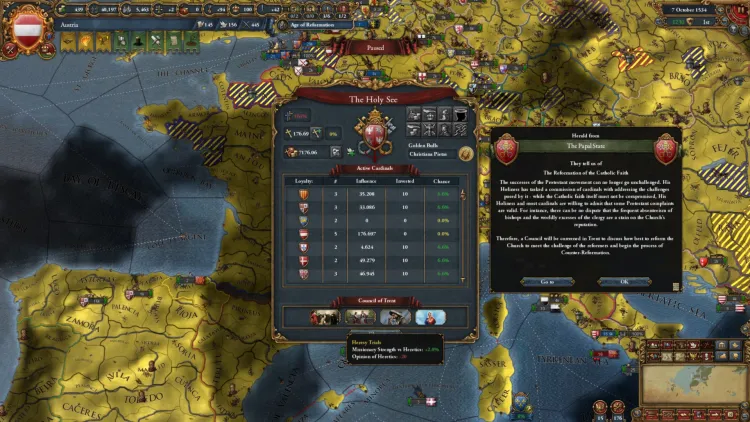





Published: Jun 9, 2020 04:00 am